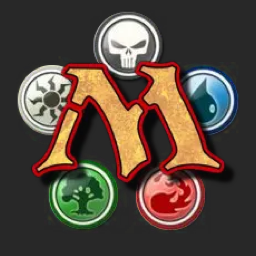A shower thought which applies not specifically to MTG, as it would obviously be a different game.
What problem does this idea try to solve?
Balancing. It is hard to balance every card during design phase (or even impossible, as can be shown), which results in some overpowered cards which make the game less fair.
How?
Supply and demand. A card which is played often (by many players, in many games) has it’s mana cost increased slightly. A card which is played rarely becomes cheaper.
Implications
This is probably not feasible with most mana costs sitting in the 1-digit-range. We can’t make a 2-cost card “slightly” cheaper. So we would either need a mana system which works with decimals (e.g. 3.1415 CMC), or raise the integer system to a higher plateau (e.g. 314 CMC)
It’s also only contemplable in digital versions, where a server can monitor every card drop, and adjust costs accordingly.
A big drawback is that your deck’s costs can change over night (or even between consecutive games), forcing players to edit their decks more frequently. A partial solution could be a notification system, and/or scheduling the recalculations to a slower frequency, like once per week or once per month.
A big advantage is that we now have an impartial Big Brother watching the balancing. Humans can err, crowds and echo chambers even more so. When people complain about an imbalanced card, is their cause justified or is it just a small but loud minority? Monitoring the cold hard data seems like a better way, and automated problem solving likewise.
What are your thoughts on this idea? Do you know another TCG which applies something similar?


I don’t play Magic—or any TCGs, but I thought this was interesting and had done feedback on the idea. I don’t have the experience necessary to weigh in on the substantive question of whether it’s a good idea or not, but I do think the logistical issues you raised would not be nearly so problematic.
You would at a bare minimum not change the costs for players in a tournament in the middle of the tournament. And now generally, I think rather than dynamic cost changes, you would probably be better off doing seasonal patches like a video game’s balance. Maybe that’s monthly, maybe every 3 months. But certainly not every day or even every week.
Not necessarily, though that would make it much easier. You couldn’t count every single casual game anyone plays, but for games with a certain level of formality or weight to them you could borrow from chess. In chess games that don’t have a very tight time control, players write down both their and their opponent’s moves every turn. These are then compared to ensure they match, and fed into global chess databases. It works well in chess because of the convenience of chess notation, but aside from some difficulties with the length of card names it could easily be brought into a TCG.
But separate from that, you may not even need that level of granularity. Wouldn’t someone merely putting the card in their deck to play be sufficient? Registering what cards are in your deck is, I believe, already a thing in other games’ tournaments. Does Magic not do the same? Because that should be sufficient, at least in the highest level of play, to determine whether players have the intent to use a card because they believe its value is appropriate or cheap.
That makes much more sense, yes.
Your other thoughts are also good and welcome. Yeah, tracking what cards tournament players include is probably sufficient!
I would say there may also be some value in seeing what actually gets played. Especially among middle level players who might not have perfectly aligned their decks with how they play. For example, a player might think they want to play a card and put it in their deck, but then find out it’s actually too expensive to play in the game once they draw it, so it stays in their hand.